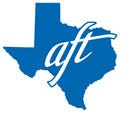Money drives district partnerships with charter schools
If you can’t sell charter-school partnerships with districts on their merit, add some money to the pot to sweeten the idea. This isn’t a revelation, but the fact that the state is trying to help charters buy their way into our public schools is reinforced in an article out of the Dallas Morning News Saturday: “Unexpected side effect of Texas school finance overhaul has Dallas schools nixing controversial charter partnership.”
Here’s the background from the Morning News:
One of the most politically heated battles the Dallas school board has undertaken in recent years was the decision to transform some classrooms into charters.
Parents and teachers crowded meetings for months urging the board to not “privatize” any part of DISD by handing control over to outsiders. Trustees argued amongst themselves late into the evening — and well into the early morning hours — before finally agreeing earlier this year to create partnerships that allow private operators to run some DISD prekindergarten classes as charters.
But now, DISD is hitting reverse. Administrators told trustees on Thursday that the district needed to scrap the plan altogether because the district will receive dramatically less money from the state than projected.
….The district was taking advantage of a 2017 law, SB 1882, aimed at encouraging traditional districts to partner with charters, which are public schools that are generally run by independent operators. Districts using the law would receive about $1,800 more per student in 1882 partnerships, which was about how much more charters received in previous state funding formulas.
Then the historic revamp of school finance by legislators this spring meant more money flowing into public schools. But that also had the side effect of dramatically reducing the gap between charters and districts, thus decreasing the money available for 1882 partnerships.
Because DISD’s partnership was for pre-K students, which were funded at a half-day rate by the state, the district expected to receive between $800 and $900 per student. Instead that would be closer to $350.
Apparently the district officials also were concerned about the logistics and costs of training staff at these charters organizations on pesky things like laws on open records and governance. So here’s the kicker, that some School Board members were quick to say, “It’s just about the money.”
[School Board members] also pushed back on the community concerns that such partnerships were a move to privatize public schools saying the 1882 partnership was intended solely for leveraging more state dollars.
Saturday’s article echoes a February Morning News piece, by the same reporter (Eva-Marie Ayala) on the initial Dallas partnership proposal: Texas schools hone message: Charter deals are about more money, choices.
[Critics] fear any move by a district to hand over school operations to an outside entity amounts to the “privatization” of children’s education and opens the door to risky experimentation.
But school officials in Dallas and Fort Worth insist they want to use a new Texas law that encourages in-district charters to funnel more state money to their schools by partnering with universities or nonprofits.
Here’s the Fort Worth Superintendent, Ken Scribner, who shows that it’s not always just money driving decisions to welcome in charters:
“Charters are here, and they’re not going away,” he said. “The best strategy for us is to partner with them so that we have one system of great schools where any student in any corner of Fort Worth ISD has choice. If we’re allowed to play on a level playing field, we can out charter the charter schools.”
Guidance from the Texas Education Agency stresses that key components of these deals are for a partner agency to have “autonomy” over personnel decisions, educational programming and budgeting. An independent governance board would be appointed to oversee schools in the partnership.
Scribner’s language is right out of the playbook for TEA pushing charters, with its System of Great Schools strategy to create a portfolio model of an administrative hub managing enrollment in expanded charter schools running alongside public school.
By Rob D’Amico, Texas AFT Communications Director
(Follow on Twitter @damicoaustin and @TexasAFT)
